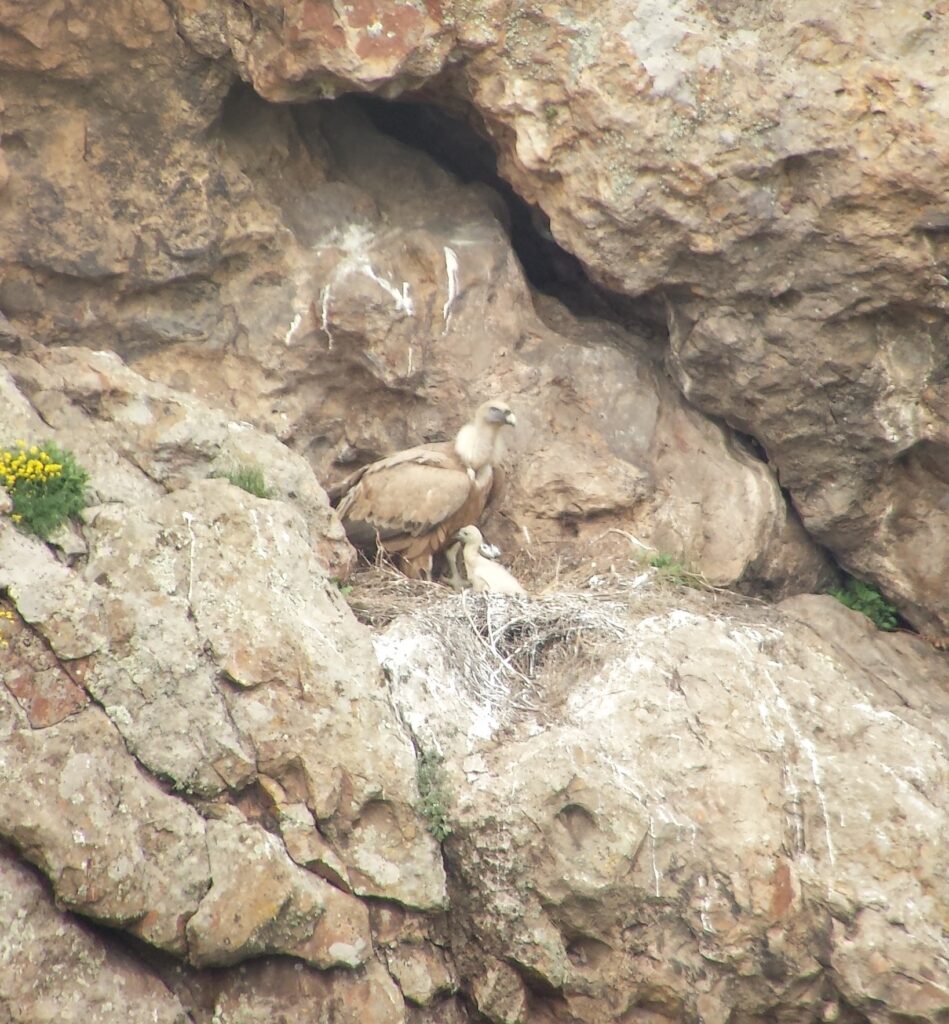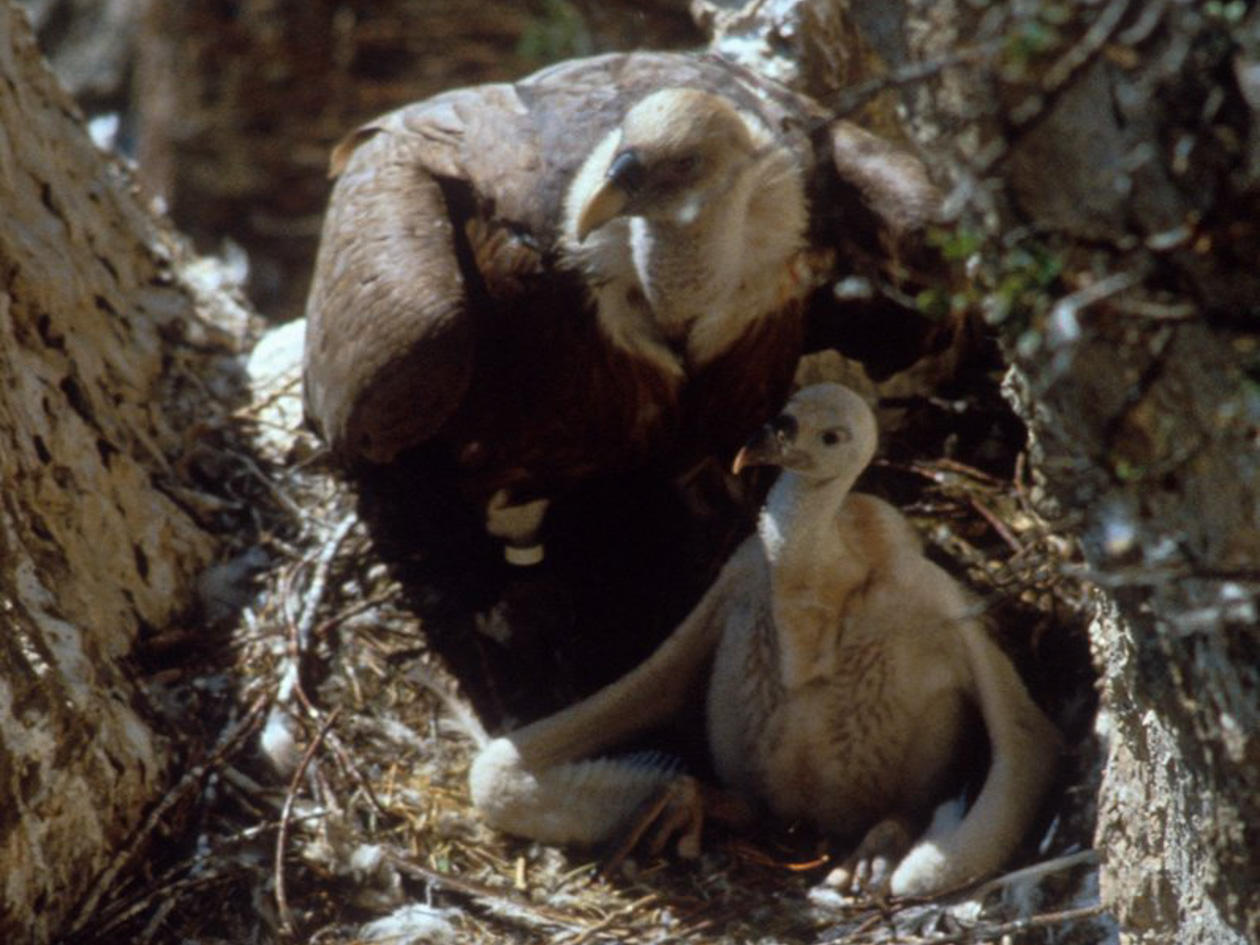This year vulture experts and the rewilding team in the Rhodope Moun-tains counted 72 hatched vultures within the regular monitoring pro-gramme of the only indigenous griffon vulture population in Bulgaria.

Rewilding Rhodope is thrilled to announce that 72 griffon vulture chicks have so far hatched in the Rhodope Mountains rewilding area in Bulgaria this year. The team and vulture experts from local partner the Bulgarian Society for the Protection of Birds (BSPB) visited all the nesting sites in the eastern part of the Rhodopes Mountains in mid-May to conduct the count. This number may increase in the coming weeks, as one pair is still hatching). Last year the number of the registered hatched chicks is similar – 73 chicks. With 51 chicks hatching in 2016, this year’s result continues the positive growth witnessed in recent years.
“We have seen both the number of nesting griffon vultures and the number of hatchlings follow a stable or upward trend over the last five years,” says Dobromir Dobrev, a vulture expert attached to the Rewilding Rhodopes team.

The griffon vulture was once widely distributed across Bulgaria. But by the early 1970s, it was thought to have disappeared completely, largely due to the decreasing availability of food, habitat loss, persecution and poisoning. In 1986, a griffon vulture colony was discovered near the small town of Madjarovo in the Eastern Rhodope Mountains, consisting of about 20 birds and three nesting pairs. Ongoing conservation efforts, many carried out by the BSPB, have seen the birds recover to their current level.
Vulture chicks typically hatch at the end of March and early April. They are then raised by their parents for nearly four months until they are ready to fly, taking to the air for the first time around 140 days after birth. By the middle of summer, the young vultures typically weigh about seven to eight kilogrammes; while they are not quite as heavy as their parents, they are the same size and have all their feathers (although the colouring in juvenile vultures is different to adult birds).
Griffon vultures are known to be caring parents, with both partners changing position while hatching the egg and raising their chick. During hot summer days, each parent can spend hours with extended wings, shading their offspring.
Starting in 2016, the five-year LIFE Vultures project was developed by Rewilding Europe, in collaboration with the Rewilding Rhodopes Foundation, the BSPB, and a range of other partners. Focusing on the Rhodope Mountains rewilding area in Bulgaria (where the griffon vulture colony is located), as well as a section of the Rhodope Mountains in northern Greece, rewilding efforts are focused on supporting the recovery and further expansion of the griffon and cinereous (black) vulture populations in this part of the Balkans, mainly by improving natural prey availability, and by reducing mortality through factors such as poaching, poisoning and collisions with power lines.